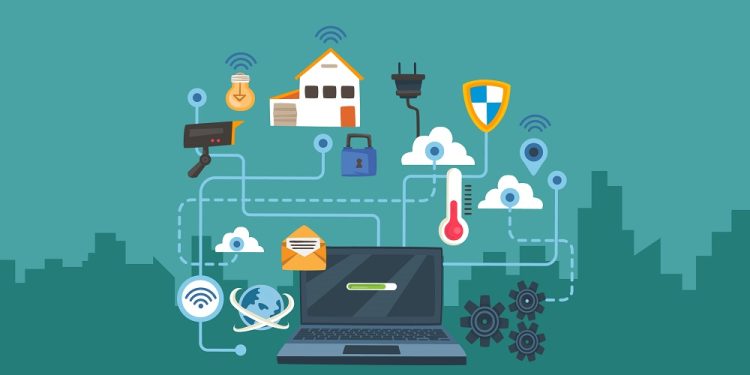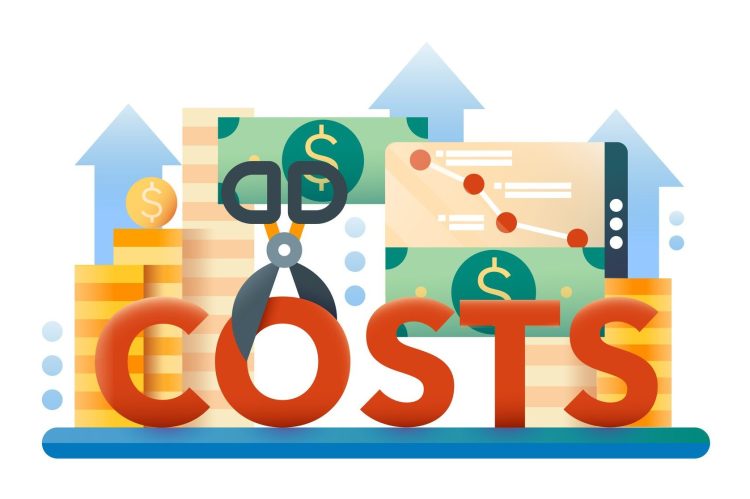Over the last few years, the Internet of Things, commonly referred to as IoT, has undergone a rapid revolution in terms of benefits offered and accessibility across all sectors. IoT goes beyond simply connecting devices to systems; it creates a wealth of opportunities for both products and services that would not have been conceivable otherwise.
When the concept was first implemented, the Internet of Things was seen as a piece of technology designed particularly for startups. However, today, it has become a reliable technology for all businesses, big or small. Listed below are the benefits of IoT connectivity for organizations that are striving to make their business future-ready.
1. Opens The Door To More Opportunities

Data is often referred to as digital gold and for good reason. It is one of the most powerful tools that a business can equip itself with. IoT connectivity is a dynamic combination of accessibility and cost-effectiveness, especially for those businesses that deal with time-sensitive products, like healthcare and e-commerce.
For example, using sensors in product assembly lines, transportation vehicles, or warehouses can help line managers monitor different stages of business operations. They can then leverage the data to take active steps to improve business performance and maximize revenues.
These sensors can be directly connected to a company’s regional office or headquarters, through cellular networks, allowing data to be tracked in real-time. From the temperature at which perishable products are transported to the tracking of shipment, data collected from smart systems like sensors can help any business make informed decisions for future growth.
2. Improved Customer Retention and Satisfaction
A loyal customer base is the backbone of any successful business. Since IoT connectivity provides reliable insights into customer preferences and behavior, it enables enterprises to design perfectly curated products or offer specialized services that can drive customer engagement.
In the retail industry, for example, on-floor cameras that are connected to analytics systems can help corporate managers better understand customer feedback for new product launches or promotions, and tweak them accordingly to boost sales.
The real-time data and preemptive insights that are driven by IoT connectivity, help companies address customer issues, queries, and requests quickly. These can also help companies create a personalized customer experience. All of these aspects contribute positively to customer satisfaction and improve customer retention.
3. Increased Productivity And Efficiency

One of the main benefits of IoT connectivity is that mundane, repetitive tasks can be automated. This can free up more time for complex tasks and solutions where creativity is needed, therefore, adding value to a business.
Automating processes like onboarding, training, and grievance redressal, can improve efficiency and also address any skill mismatch. Apart from freeing up time for human resources, IoT propagates efficiency and productivity of various processes throughout a product’s lifecycle, since assets like equipment, time, machinery, and more can be tracked.
Real-time operational insights can be collated from the logistics network all the way to the supply chain processes. This data can help inventory move faster, improve asset utilization, reduce time to market, and also minimize any downtime due to updates and maintenance.
Since major processes can be automated in various sectors like the manufacturing industry, factories can work round the clock, hence, producing more products. At the same time, human errors are significantly reduced.
4. Increased Security And Safety At Work
IoT connectivity in high-risk work environments like embedded wearables or sensors can help improve employee safety and reduce the chance of accidents. Leveraging the benefits of IoT in high-risk industries like construction, maximizes operational safety, while adhering to rules and regulations.
Safe working conditions also make the business an attractive investment opportunity for partners and other stakeholders, which in turn, improves the business’ reputation. Not only can employees be alerted about impending dangers at the workplace, but, cyberattacks and data breaches on physical systems can also be prevented.
A seamless network of IoT monitoring devices like surveillance cameras and sensors can help prevent theft, physical threats, cyberattacks, and more. This real-time data can also help teams coordinate with one another and resolve issues proactively. However, to use IoT it has to be implemented well, by a trustworthy service provider, so always look into any additional info before implementing an IoT system.
5. Optimized Operating Costs

Cost-optimization, which involves balancing resources spent with profits gained, can be done by improving various activities simultaneously. These include asset utilization, the efficiency of processes, and employee productivity.
These three pillars of an organization’s cost-optimization can be improved through a combination of real-time diagnoses and predictive analytics. When a business utilizes IoT effectively, maintenance costs are reduced by more than 25%, and downtime is reduced by 35%, according to researchers.
In the manufacturing sector, IoT can help reduce costs by predicting and reducing errors on the production line. Automated scheduling of raw material delivery and controlled maintenance processes can also increase the production rate.
It can also help businesses scale up sustainability efforts and cut down on energy costs. Similarly, smart building systems like lights and HVAC systems equipped with motion sensors can reduce the unnecessary use of electricity consumption.
6. Increased Business Prospects
Needless to say, the automation and efficiency of processes offered by IoT connectivity are beneficial to a business in several ways. Since repetitive tasks are automated and optimized, it leaves room for businesses to create new revenue streams and keep up with consumer demand.
Thanks to IoT, many businesses can offer a wider array of products or services, without compromising on quality or inflating the costs. This gives them an edge over their competitors who still use traditional systems.
Similarly, the benefits offered by IoT can encourage teams within the business to tackle more challenging tasks, whether they have constraints in time, quality, quantity, or difficulty. Arriving at solutions to these problems makes an organization more attractive to both consumers and investors.
7. Improved Coordination Between Teams

Sharing important insights gathered from IoT systems across the ecosystem of partners and clients can create a new avenue for innovation. Cross-functional teams can be created, and existing teams can function better as IoT facilitates transparency between different departments.
This data and its inferred insights can strengthen shared goals, and help a company function better as a whole. IoT can empower different business verticals to create tactful strategies to tackle common issues across a product or service’s lifecycle.
Improved coordination between teams can help detect problems before it is too late and solve complex management issues. With shared goals, profits and productivity can be maximized, hence, securing a company’s future.
Conclusion
IoT undoubtedly has immense potential for any business, irrespective of size. It can transform a business for the better while helping it utilize available resources efficiently, and in an optimized manner.
It is an attractive value proposition for any company if implemented in the right way. IoT brings the best of both worlds – data and intelligence – together, to provide preemptive insights and shape a business’ future.








